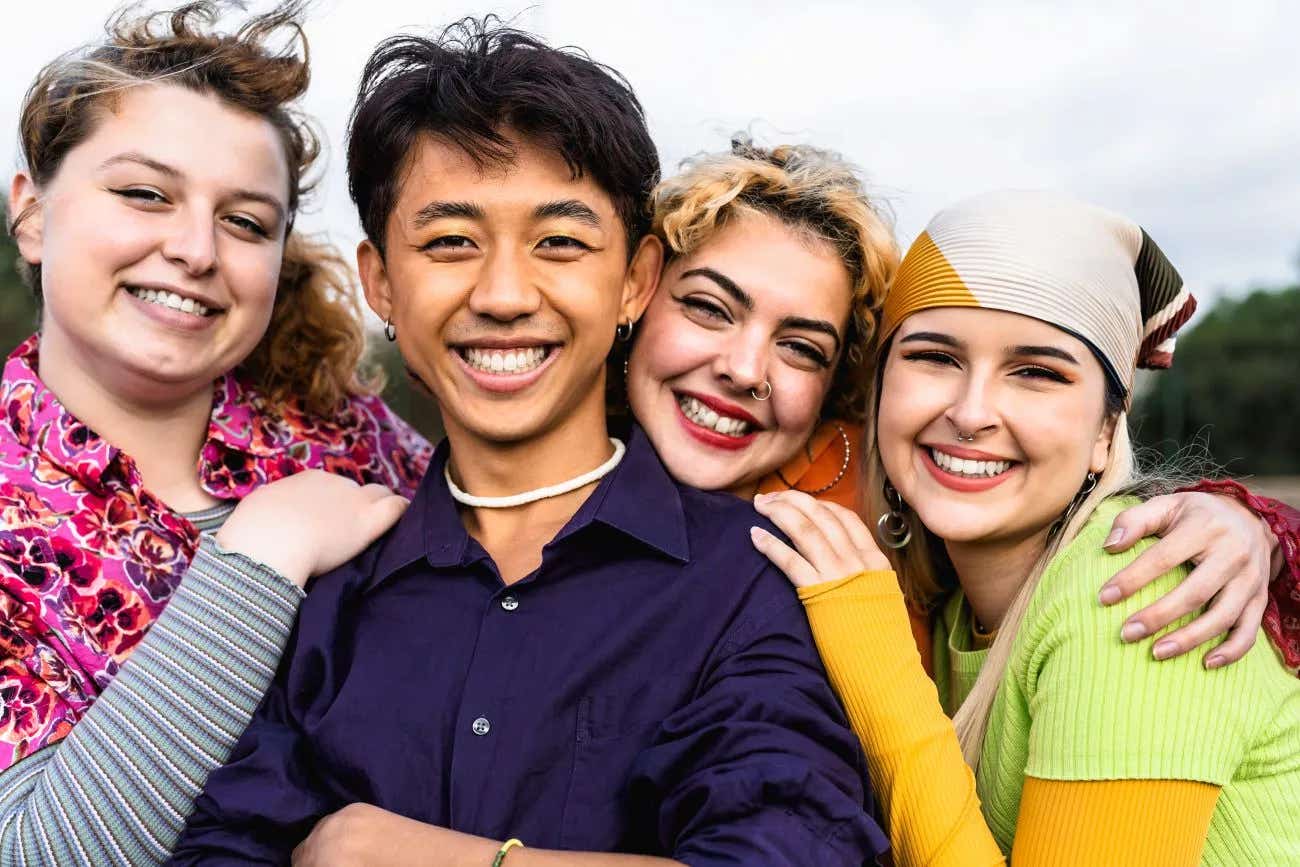Gen Z is transforming sexuality and relationships
Gen Z is leading a transformation in dating and sexuality, balancing traditional values like monogamy with a progressive approach to fluid identities and kink exploration.

The report takes a deep look at how Generation Z is shaping the world of dating. (CREDIT: CC BY-SA 3.0)
Feeld, the popular dating app designed for open-minded individuals, partnered with Dr. Justin Lehmiller of The Kinsey Institute to release a comprehensive report, “The State of Dating: How Gen Z is Redefining Sexuality and Relationships.”
Published on World Sexual Health Day, the report takes a deep look at how Generation Z is shaping the world of dating, influenced by global changes, the rise of digital culture, and evolving social norms. The findings reflect how this generation is actively rethinking conventional relationship models, embracing fluid identities, and challenging traditional structures.
The report draws from both Feeld’s diverse user base and broader research from The Kinsey Institute. It reveals that Gen Z is forging its own path in terms of relationships and sexuality, often blending progressive attitudes with some surprisingly traditional values. Dr. Lehmiller’s analysis also compares Gen Z’s behaviors and attitudes with those of Millennials, Gen X, and Boomers, highlighting the generational shifts that are taking place.
A clear difference emerges when comparing Gen Z’s approach to relationships with that of older generations. For example, while Gen Z tends to romanticize monogamy, Boomers lean more toward casual relationships, like the "friends-with-benefits" model. This generational contrast is a key theme throughout the report.
Monogamy: Still Popular Among Gen Z
Despite the assumption that younger generations are abandoning traditional relationships, monogamy remains surprisingly popular among Gen Z. According to the report, 23% of Gen Z members on Feeld prefer monogamous relationships, while only 15% are inclined toward non-monogamous arrangements.
Related Stories
Interestingly, this preference for monogamy decreases among older generations. Only 16% of Millennials and just 9% of Gen Xers report favoring monogamy, while non-monogamy is more common, with 24% of Millennials and 27% of Gen Xers opting for ethical non-monogamous relationships. Boomers, on the other hand, have a different perspective—27% of them prefer casual "friends-with-benefits" relationships, compared to just 12% who favor monogamy.
Even more telling is how often Gen Z fantasizes about monogamy. A striking 81% of them have had monogamous fantasies, and 44% think about monogamy often—nearly double the rate seen in older generations.
Sexual and Gender Fluidity: Redefining Identity
Another significant finding from the report is the degree of sexual and gender fluidity among Gen Z users. According to Feeld’s data, 59% of Gen Z members identify with a sexual orientation other than heterosexual, and 18% identify as gender diverse. These figures far exceed national averages, where only around one in five Gen Z adults identifies as LGBTQ, according to research by Gallup and Pew.
What’s more, Feeld users appear to be on a journey of self-discovery. Since joining the app, 10% of Gen Zers have experienced a shift in their gender identity, and 18% have reported changes in their sexual identity. This growing openness to exploring and redefining one's identity over time aligns with broader research from The Kinsey Institute, which shows that younger generations are increasingly fluid in how they view sexuality and gender.
Kink Exploration: Leading the Charge
Gen Z is also pushing boundaries in terms of sexual exploration, particularly in the realm of kink. Over half of the Gen Z members on Feeld (55%) have discovered a new kink since joining the app, making them the most exploratory generation compared to 49% of Millennials, 39% of Gen Xers, and just 33% of Boomers.
This trend mirrors Dr. Lehmiller’s broader research, which has documented a rise in kink and BDSM interests among Gen Z. His findings show that 56% of Gen Zers have BDSM-related fantasies, while only 12% of Boomers share these interests. It seems that this younger generation is leading the way in exploring less conventional sexual interests and preferences.
A New Take on Tradition and Fluidity
At the heart of these findings is a reimagining of traditional values through a modern lens. Gen Z’s embrace of fluid identities and openness to sexual exploration, combined with their surprisingly strong attachment to monogamy, suggests that this generation is blending tradition with progressive ideas.
Dr. Lehmiller commented, "The data from Feeld members offers a fascinating glimpse into how Gen Z is redefining relationships. Their openness to exploring more fluid ways of being, coupled with an unexpected affinity for monogamy, suggests a generation that is simultaneously challenging and embracing tradition."
He also noted how Feeld’s community stands out compared to national averages. “What is striking is how the Feeld community seems much more open to exploring, defining, and redefining who they are. This helps advance our understanding of where sexuality and relationships are heading in a broader cultural context.”
Looking Ahead: The Future of Relationships
Feeld’s CEO, Ana Kirova, sees this report as a window into the evolving landscape of relationships. “Feeld is non-prescriptive by design, intentionally maintaining a space for exploration without judgment. We build the app with and for our members—they are the ones who truly shape the future of dating, self-exploration, and relationships.”
Kirova emphasized the importance of allowing space for ongoing exploration, both as individuals and as a society. "Each person’s and every generation’s evolution is constant and often unpredictable. I hope that in seeing these discoveries, we all feel inspired to hold space for our shared human experience in all its fluidity.”
As Gen Z continues to shape the future of sexuality and relationships, this report captures a key moment in their journey. Their openness to exploring fluid identities, while maintaining a connection to traditional concepts like monogamy, reflects a unique blend of old and new values that is reshaping the societal norms of relationships.
Note: Materials provided above by The Brighter Side of News. Content may be edited for style and length.
Like these kind of feel good stories? Get The Brighter Side of News' newsletter.
Joseph Shavit
Head Science News Writer | Communicating Innovation & Discovery
Based in Los Angeles, Joseph Shavit is an accomplished science journalist, head science news writer and co-founder at The Brighter Side of News, where he translates cutting-edge discoveries into compelling stories for a broad audience. With a strong background spanning science, business, product management, media leadership, and entrepreneurship, Joseph brings a unique perspective to science communication. His expertise allows him to uncover the intersection of technological advancements and market potential, shedding light on how groundbreaking research evolves into transformative products and industries.



